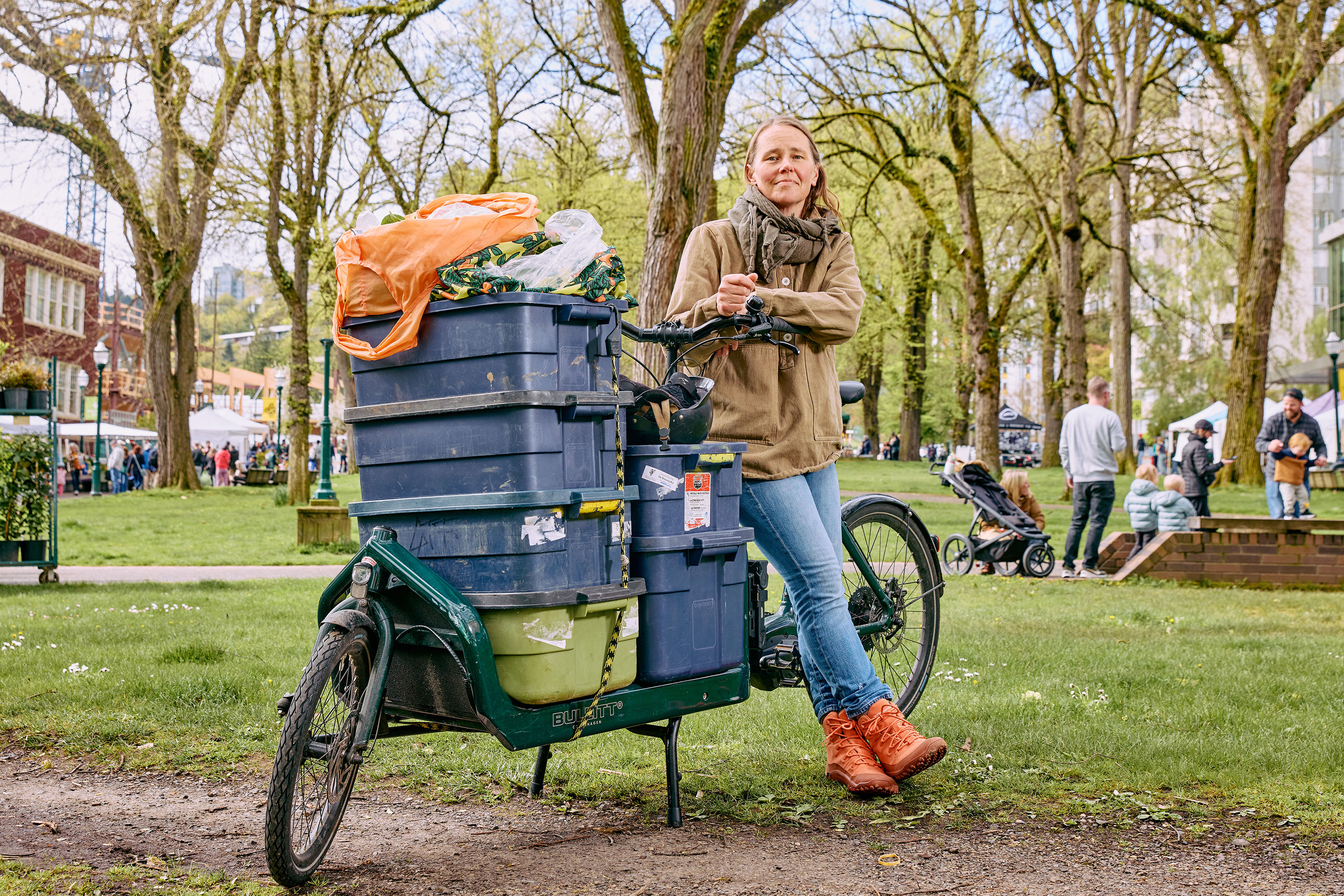New Biketown Program Helps Cyclists with Disabilities Get on the Road
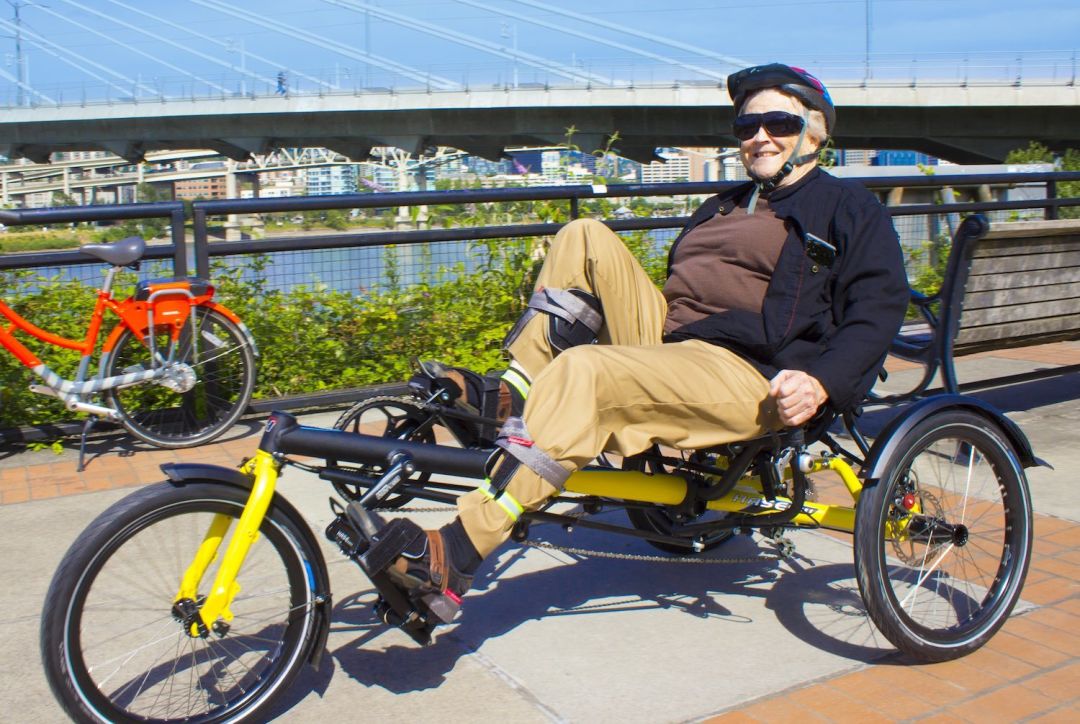
A cyclist tests out an Adaptive Biketown rental bike.
Image: Sarah Petersen
More than a hundred cities across the US have bike share programs, but only a handful include adaptive bicycles—and now, Portland is one of them. On July 21, the Portland Bureau of Transportation launched Adaptive Biketown, which rents cycles modified for individuals whose disabilities prevent them from riding traditional bikes. This pilot program is currently funded through June 2018.
How It Started
PBOT’s director, Leah Treat, says it wasn’t long after the city started its standard Biketown bike share program last summer that organizers realized they needed to needed to be more inclusive. They heard from disappointed members of Portland’s disability community and current city commissioner Chloe Eudaly, who was running for the office at the time and has a son with cerebral palsy.
“I believe we made a mistake when we launched Biketown and didn’t include adaptive cycling,” says Treat. “It’s something I’m proud that we took action on and remedied [because] if we’re truly intent on our goals to get more people walking, cycling, taking transit, and all the things that we have in mind, we need to make it accessible for everyone.”
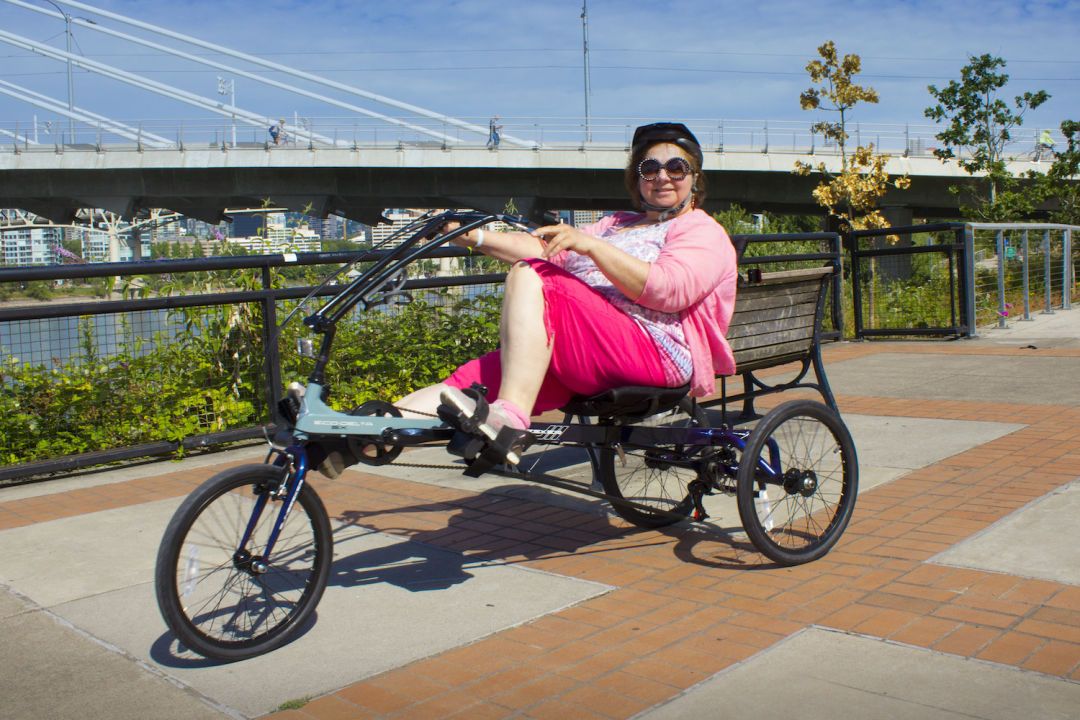
A cyclist tests out an Adaptive Biketown rental bike.
Image: Sarah Petersen
One of the city’s first steps was forming the Adaptive Bicycle Pilot Project Work Group—made up of interested Portlanders with disabilities and representatives from knowledgable organizations—which offered advice throughout the planning process this past spring. Through surveys and feedback, PBOT learned that locals wanted three main elements in an adaptive bike share program: assistance with fitting the bicycles to their individual needs, ability to ride on multi-use paths or trails, and a place to store their mobility device (which range from crutches to a service animal).
Adaptive Biketown hopes to meet these desires through PBOT’s partnership with bike rental company Kerr Bikes and Different Spokes, a local business that sells adaptive bikes. PBOT made a $30,000 contribution to the project—including $14,000 to purchase 10 bikes—and Biketown’s title sponsor Nike also provided $10,000.
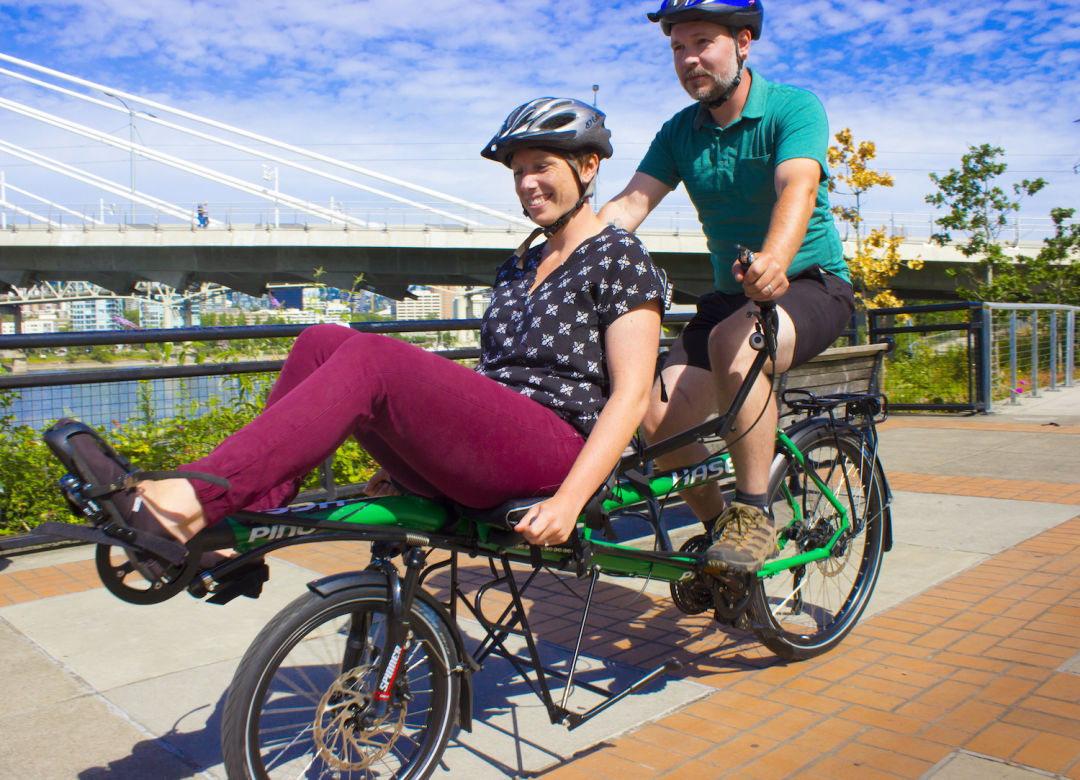
Cyclists test out an Adaptive Biketown rental bike.
Image: Sarah Petersen
How It Works
Because every disability and individual’s needs are unique, the Adaptive Biketown rental process is more involved than checking out an orange cruiser from one of its sister program’s 100 hubs. Adaptive Biketown is only available through Kerr Bike’s OMSI location right now, and participants must register in advance. This is because each adaptive bike needs to be adjusted appropriately to its rider’s needs, which can take anywhere from 10 to 45 minutes. Fittings can involve specially made bikes, such as hand cycles or trikes, as well as a variety of accessories, including cuffs that help riders keep their grip on the handlebars and pedal stabilizers (straps across the foot or calf to keep one’s legs on the pedals). Kerr Bikes will keep notes on the adjustments it makes to make the process easier during following rentals.
Since the shop’s rentals have historically focused on three-wheel choppers and multi-person surreys, adaptive bike fitting was a steep learning curve, even for bike mechanics with years of experience, says Craig Rusch of Albertina Kerr, the nonprofit that runs Kerr Bikes. The organization has supported children and adults with developmental disabilities or mental health issues in Portland since 1940. Thus, its nine-year-old rental shop’s participation in Portland’s new adaptive bike share program was a no-brainer, Rusch says. And after a series of employee trainings from Different Spokes’s adaptive bike experts, employees at Kerr Bikes can now customize rides to fit people with many different kinds of physical impairments. As opposed to Biketown’s street-side hubs, the adaptive program’s brick and mortar-based rental system offers free nearby parking, a place for renters to store their mobility devices, and closeness to the Eastbank Esplanade.
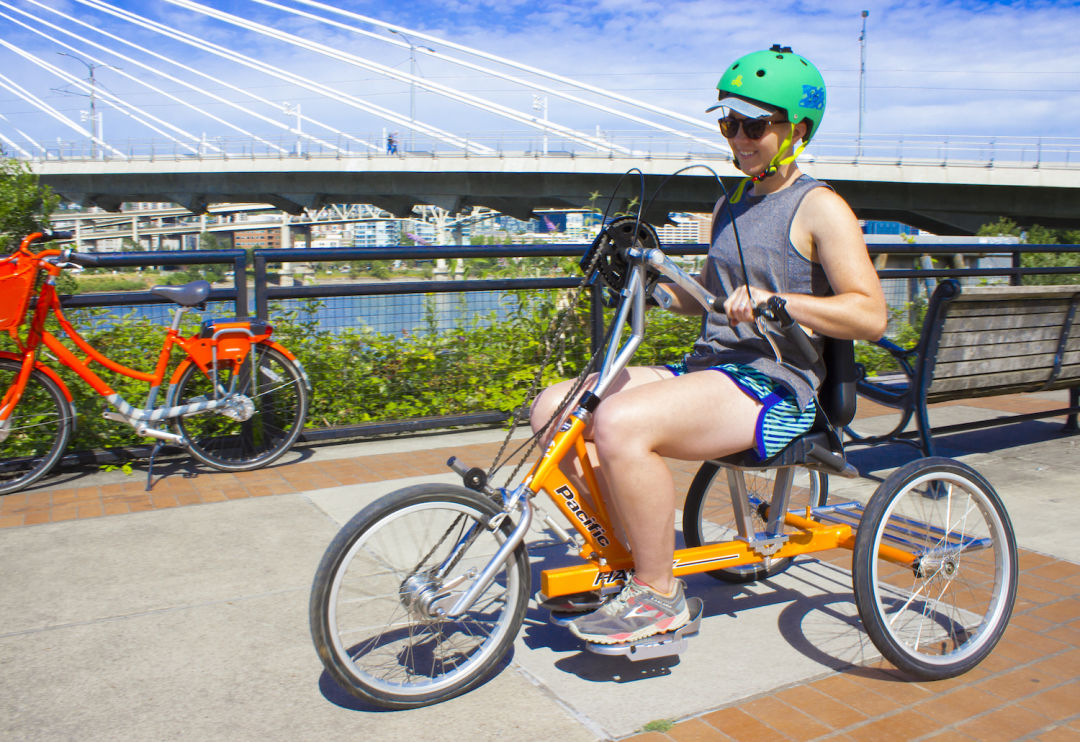
A cyclist tests out an Adaptive Biketown rental hand trike.
Image: Sarah Petersen
For Jeff Wilkerson, a 34-year-old Portlander who has mild cerebral palsy, biking’s low-impact workout is not only healthful, but it allows him to “communicate and connect” more easily with the people he rides with.
“The disability community, I feel, is not well represented in the public consciousness,” says Wilkerson, who participated in PBOT’s advisory committee. “I love Adaptive Biketown because it shows a willingness to understand the needs of a minority group that is often forgotten about. It’s an outlet where I can join in on the fun and do what other people are doing.”
Adaptive Biketown’s rental cost is $5 per hour or $12 for three hours for people with disabilities, seniors, and Medicare recipients. (All other renters are subject to higher rates.) One service Adaptive Biketown can't provide is helping riders move from a mobility device onto the bike—users will need to bring a friend or caregiver who can help, if necessary.


